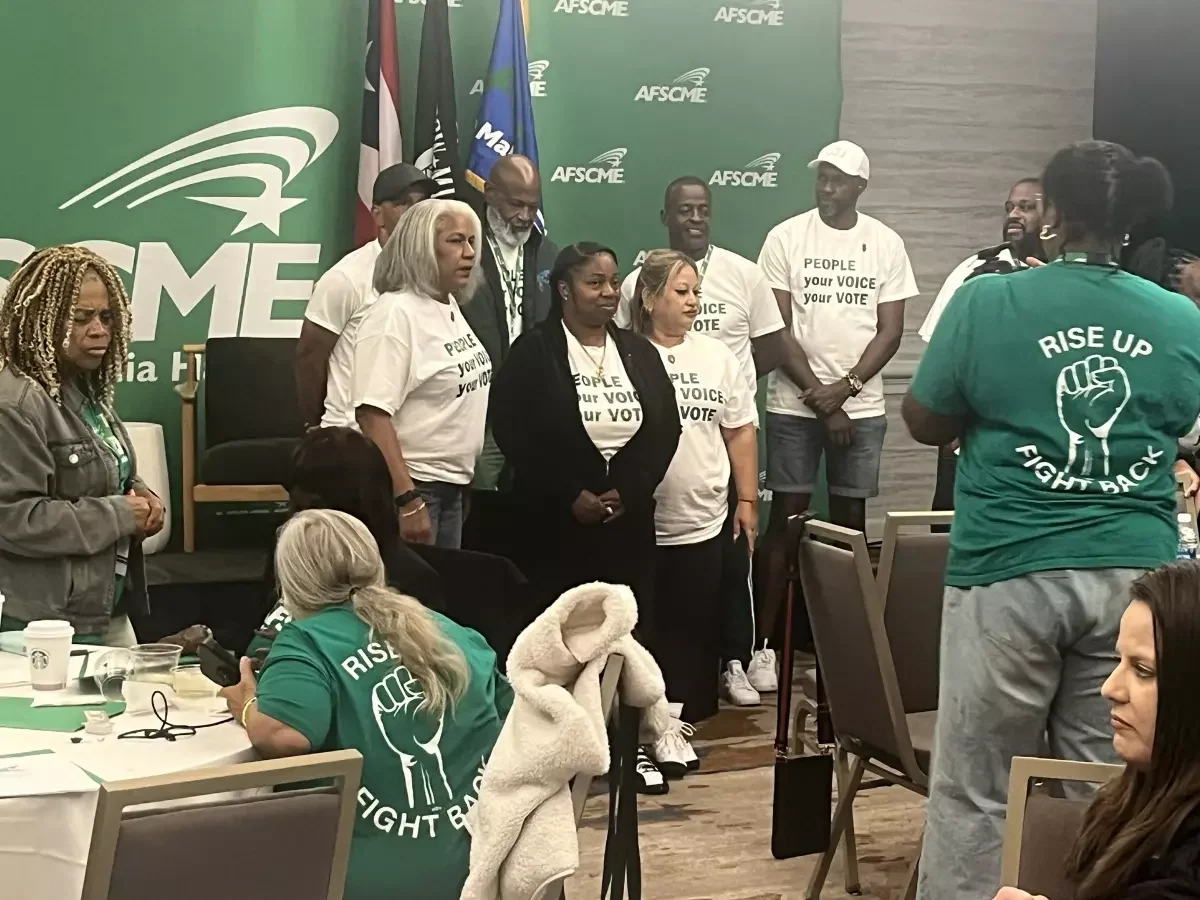Celebrating Women's History Month in San Jose - The Right Way
AFSCME Local 101 members picket San Jose City Hall for pay equity in July 1981. (Photo by Lou Dematteis)
By now, I’m sure most of you have seen the email from our City Manager, Jennifer Maguire, celebrating Women’s History Month. As a woman in a leadership role myself, I’m glad the City Manager took time out to remind us that “Women’s History Month began in 1981 as a week of recognition, rooted in the issues of equal treatment, rights, and protections, and San José has been a leading community for women at the vanguard of our nation’s history.” Somewhat conveniently, she ends the story there and fails to point to where that small amount of power came from - America’s first pay equity strike right here in San Jose by the MEF – AFSCME members that came before us. The City Manager also doesn’t mention how the City of San Jose is still woefully behind regarding issues affecting women – particularly among the ranks of women City workers. Only two short years ago did we finally achieve just one week of paid maternity leave – for example. One lousy week. It took us fighting and clawing for every inch to accomplish that, and we’re two decades into the 21st century.
Members of AFSCME Local 101 in San Jose, Calif., struck for pay equity for women in 1981, the first strike of its kind in the nation. (Photo by Lou Dematteis)
The leaders of the fight were clear about the issue: certain jobs in the city were dominated by women workers, and despite the high level of knowledge, judgment, and skill required for those jobs, they were the lowest paid. As union leader Joan Goddard put it in an interview with an AFSCME archivist, “It’s not just women; it’s women’s work. There are a lot of male librarians who don’t get paid what they should be getting paid.” For the members of the Municipal Employees Federation, it was a fight to raise the wages in those undervalued jobs, from clerical workers and data analysts to librarians and recreation leaders.
In 1980, the union negotiated an agreement with city management to conduct a study of the value and pay levels of all municipal job categories. The city had conducted a similar study at the management level, resulting in closed pay gaps. Workers had high hopes that the city would follow suit for non-management workers, but management objected. While agreeing that job segregation existed and that women were clustered in the lower-paying jobs, City management refused to do anything about it at first. The administration even insisted that the cost of closing those gaps would have to come out of cost-of-living increases for all workers.
An AFSCME Local 101 member pickets the San Jose City Hall in July 1981. (Photo by Lou Dematteis)
Union members said “hell no” to that. Workers walked off the job on July 5, 1981, the day after the previous agreement expired.
They walked the picket line for ten days. They remained strong even when management sent letters to all bargaining unit employees threatening to fire them if they did not return to work. In fact, City workers turned that management tactic on its head by setting up a barbecue grill in front of City Hall and burning their letters at a massive rally. As Goddard put it, “The moose stands firm, and he does not give in. So, our union mascot became the moose.”
On July 14, they settled the strike, winning cost-of-living increases for all employees and a separate pool of money for pay equity adjustments for female-dominated job classes. Over the next five years, $1.75 million was spent to close the gaps. Workers delivered a massive victory for employees in the bargaining unit for pay equity and union power. According to the president of the Municipal Employees Federation at that time, more than 500 city workers – women and men – became new members during the campaign.
It’s worth remembering this strike as we celebrate its 40th anniversary. It fanned the flames of other pay equity campaigns led by AFSCME locals and councils across the country, from Washington state to Minnesota to Connecticut. It positioned AFSCME as a leader on the issue of pay equity for women and people of color – a fight we are still waging. It is part of the history of our union’s growth, especially among women in public service. And it reminds us of the power of collective action, then and now. Another leader in the fight, Patt Curia, said it best when she talked about the strike victory: “That’s why you need a strong union.”
Striking AFSCME Local 101 members burn letters threatening them with termination. (Photo by Lou Dematteis)









